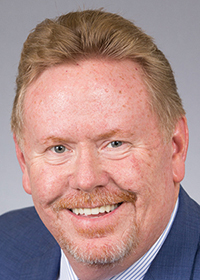In search of post-pandemic professionalism
by August 27, 2024 3:50 pm 223 views

To be certain, much has been written in the past four years about the various ways that the COVID-19 pandemic impacted all of our lives.
As a professor at Texas A&M University in the spring of 2020, my colleagues and I had to rapidly shift from teaching undergraduate students in classrooms to delivering lectures via Zoom, grading assignments by email, and social distancing in the rare circumstances that we had meetings in person.
No matter your profession, age or situation, adapting to the situation required patience and the ability to roll with the changes that were thrust upon us all. In the business world, Zoom meetings became the standard form for conducting business, and we all enjoyed a good laugh when a colleague’s young child or family pet interrupted a meeting. We all often attended meetings in sweatpants and T-shirts and engaged in friendly competition for the best home office décor or virtual backgrounds depicting exotic locations.
A shared crisis legitimately gave rise to a relaxation of professional norms and standards of conduct for business professionals in all fields or professions and made life in those challenging times just a bit more bearable. Until recently, a formal return to pre-pandemic professional conduct has never really been declared to my knowledge. Many employers have tried, with various degrees of success, to require workers that shifted to work-from-home scenarios back into an office setting.
However, a return to other standards of professional conduct has not reverted to past norms and doesn’t appear to be on the horizon either. I speak more specifically of the basic elements of professionalism, such as returning phone calls, responding to emails, arriving to meetings on time, ending meetings on time, delivering on commitments when you said you would and dressing for success in an admittedly “smart casual” business environment.

Now, it could be argued that some pre-pandemic standards were a bit “old school” and best left in the past. Three-piece suits and ties, high-heeled dress shoes, and working 8-5 in the office every weekday never had a direct correlation to business results or quality customer service. Being comfortable in how you dress and where you work can certainly have a direct correlation to worker performance and job satisfaction.
Some of us in the Northwest Arkansas business community recall with fondness Sam Walton’s Sundown Rule, and Mr. Sam’s view that “in this busy place where our jobs depend on one another, it’s our standard to get it done today … before the sun goes down.” Even now, the Walmart Museum’s website states that “every request gets same-day service, even if it’s just an email or phone call letting the person know we’re going to take care of them.”
Whether or not you ever worked for Walmart, and even whether or not you chose a career in retailing, I could easily bring up the topic of professionalism in a number of business settings and find a significant group of colleagues these days with whom I could find agreement in lamenting the loss of professional standards of conduct. The question, of course, should be, “What are you going to do about it?”
I might argue that as a business professional, at any level, you can’t reasonably be held accountable for everyone else’s conduct, but you are responsible for your own — and for any team you might lead. Some of us of a certain age were taught that our conduct in business was a reflection of our personal brand, as well as the brand we were representing for our employer.
I was always petrified of the possibility of doing anything that would damage my reputation as well as that of the company I worked for. That remains the case to this day. However, if the axiom that “leaders lead” remains true, it seems that all of us should hold ourselves accountable for the return of professionalism in our community.
Editor’s note: Scott Benedict is the vice president of education growth with 8th & Walton. The opinions expressed are those of the author.
